CoL Centre 2021 Students
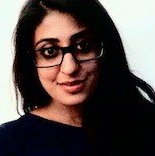
Maha Heath
CoL Centre PhD Student
Queen Mary University of London
I am a PhD student working under the supervision of Dr. Gunnel Halldén (Barts Cancer Institute), and Dr. Michelle Holland (King’s College London). My PhD project is focussed on increasing the efficacy of oncolytic adenoviruses by combining them with epigenetic drugs to activate the host anti-tumour immune response. The project focuses on identifying epigenetic compounds that enhance viral efficacy and delineating the mechanisms, looking at genome wide profiles of histone marks and how they are altered after infection with oncolytic viruses.
I have a MSc degree in Molecular pathology, Genomics and Cancer from Barts Cancer Institute, and a BSc in Mathematics and Programming.
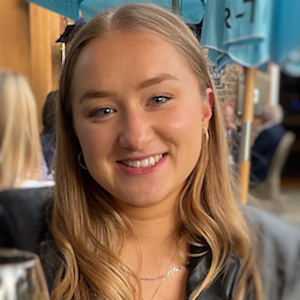
Sophie James
CoL Centre PhD Student
Queen Mary University of London
My PhD is co-supervised by Dr Paolo Gallipoli, at Barts Cancer Institute, and Prof Cristina Lo Celso, at the Francis Crick Institute. I am investigating bone marrow microenvironment driven mechanisms of drug resistance in acute myeloid leukaemia (AML). Specifically, I am interested in exploring how the bone marrow niche influences the metabolic profile of AML cells in response to targeted therapy and in early resistance.
I obtained my BSc in Biology from the University of York in 2020. As part of my degree, I completed an industrial placement year at GlaxoSmithKline (GSK) in the BioPharm Process Research department. I researched a novel method for cell and monoclonal antibody analysis and enjoyed working on cancer therapeutics. After completing my degree, I worked as a CRUK-funded research technician in Prof Ian Hitchcock’s haematology lab at the University of York. I was part of multiple exciting projects exploring normal and malignant thrombopoietin (TPO) signalling and novel therapies for myeloproliferative neoplasms (MPNs).
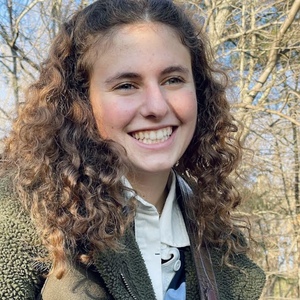
Victoire Boulat
CoL Centre PhD Student
King’s College London
I am split between two labs at King’s College London and Francis Crick Institute. My PhD project aims to uncover whether the germinal centre response in the tumour-draining lymph nodes of breast cancer patients plays a functional role in the antitumour response, especially in the context of immunotherapy. My project combines the research areas of my two supervisors: Anita Grigoriadis who expertise lies in Triple Negative Breast Cancer and Dinis Calado whose lab studies germinal centres extensively.
I obtained my Bachelor in Biological Sciences at Imperial College London. During my time there, I completed a summer placement at the Francis Crick Institute in Victor Tybulewicz’s lab investigating the development of congenital heart defects in a mouse model of Down Syndrome. In my third year, I designed an image analysis pipeline to identify drug targets against malaria using parasite morphology. These experiences motivated me to pursue a career in research.
I then applied to the Molecular and Cellular Biosciences MRes at Imperial College London. During my MRes, I completed two 6-month lab rotations which provided me with invaluable experience in many different techniques. For my first rotation, I characterised the phenotype of haematopoietic stem cells in an inducible mouse model of myelodysplastic syndrome and during my second rotation, I investigated the infection dynamics of a bacterium which lacked all of its anti-inflammatory effectors.
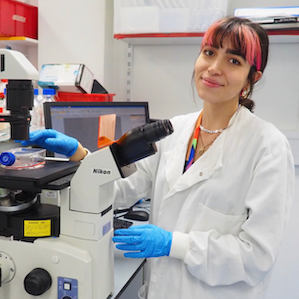
Celia Gonzalez Maroto
RadNet PhD Student
King’s College London
I am a PhD student on the CRUK City of London Centre RadNet programme. My research focuses on targeting hypoxia tolerance mechanisms and radioresistance in Head and Neck Squamous cell carcinoma. Using 3D in vitro cultures and Hyperion mass cytometry I will investigate the tumour microenvironment interactions mainly between cancer associated fibroblasts and cancer stem cells; associated with metastasis and increased radioresistance. During my PhD, I will be based between Mahvash Tavassoli’s lab at Kings College London and Adrian Biddle’s lab at Queen Mary University London Blizard Institute.
I obtained a BSc in Applied Biomedical Science at Glasgow Caledonian University, where I completed a 6-month placement at Queen Elizabeth University Hospital Haematology and transfusion laboratory. Prior to my PhD I carried out an MRes in Biomedical research at Imperial college London, which reinforced my passion for cancer research and experimental planning abilities.
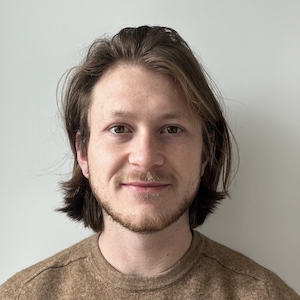
Robert Dryden
RadNet PhD Student
Queen Mary University of London
I am a PhD student on the CRUK City of London Centre RadNet programme under the supervision of Dr Susana Godinho (Barts Cancer Institute) and Prof Gary Royle (University College London). The focus of my project is to characterise the structural alterations of centrosomes in irradiated cancer cells and to examine the mechanisms driving radiation-induced centrosome amplification. My aim is to then assess the sensitivity of tumours to centrosome-based therapies following radiation treatment in models of pancreatic cancer.
I hold an MSc in Genetic Manipulation and Molecular Cell Biology from the University of Sussex, during which I conducted a research project in Dr Chris Chan’s Chromosome Dynamics and Stability Group investigating the role of TOPBP1 in DNA decatenation during mitosis. I developed a strong interest in the cellular mechanisms that preserve genome integrity during cell division and understanding how these can be exploited to tackle cancer.
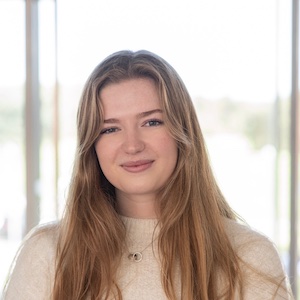
Sarah Harding
RadNet PhD Student
King’s College London
I am a RadNet PhD student primarily supervised by Dr Gilbert Fruhwirth at King’s College London in collaboration with Prof Vicky Sanz-Moreno at Barts Cancer Institute. My project aims to investigate how tumour hypoxia changes susceptibility to radiotherapy, impacts cancer cell invasiveness and the immune compartment, as well as how persistent these effects are. We hope to better understand the links between these three themes and ultimately assist in finding an appropriate combination of radio- and immunotherapy to potentially halt metastatic progression.
I graduated in 2020 with a BSc in Cancer Biology and Immunology from the University of Bristol. As part of my degree I completed a placement year at PhoreMost, a drug discovery company based in Cambridge, where I mainly worked on an immuno-oncology project aiming to generate neoantigens to sensitise immunologically cold tumours to immunotherapy. I enjoyed my time there so much that I returned as an associate scientist upon completing my degree to again work on an oncology project, this time mainly based on targeting KRAS mutant cancers.
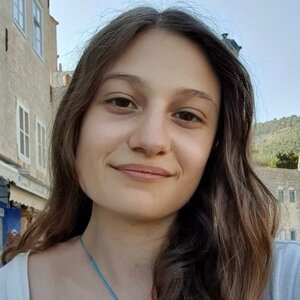
Angela Andrianopoulou
MBPhD Student
UCL
I am an MBPhD student in Prof Tony Ng’s group based at the UCL Cancer Institute. My research will be utilising imaging techniques to better understand how HER2-positive breast cancer responds to treatment. The aim is to identify molecules that can be used as biomarkers to follow tumour response to treatment, monitor for the development of resistance to treatment and better guide patient selection for targeted therapies.
I started my Medicine degree at St George’s, University of London. I completed an intercalated BSc in Medical Science with Cancer Frontiers at Imperial College London, in which my research focussed on the epigenetic mechanisms involved in ovarian cancer prevention. I have since transferred to UCL to continue my degree and embark on this intercalated PhD.
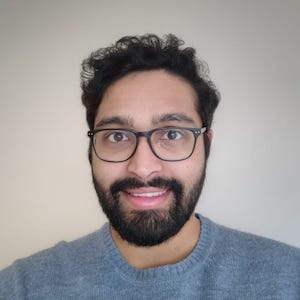
Marcellus Augustine
MBPhD Student
UCL
I am a UCL MBPhD student based in Dr Kevin Litchfield’s group at UCL Cancer Institute and Prof Charles Swanton’s laboratory at The Francis Crick Institute. My research leverages multi-omics data from patients treated with immune-oncology therapies alongside functional data derived from in vitro systems. I am interested in utilising machine learning techniques to integrate and analyse these data with the aim of identifying novel immunotherapy drug targets that can be treated for the benefit of patients.
Prior to starting on the MBPhD programme, I was undergoing medical training at UCL Medical School and have completed an intercalated BSc in Mathematics, Computers and Medicine.
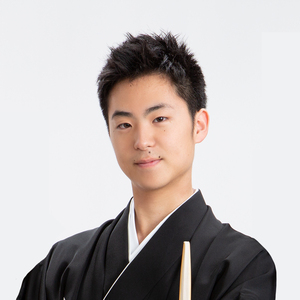
Yuta Nagano
MBPhD Student
UCL
I am an MBPhD student supervised by Prof. Benny Chain and Prof. Sergio Quezada of UCL and the UCL Cancer Institute respectively. In short, my project is about developing a computer algorithm that predicts the epitope specificity of T-cell receptors (TCRs), then using it to analyse the anti-tumour immune response in patients with non-small cell lung carcinoma.
More precisely, I aim to train a deep learning model that maps TCR amino acid sequences to fixed-size vector embeddings in such a way that an embedding for a particular TCR contains information regarding its epitope specificity. With this algorithm, I will generate ‘maps’ of patients’ immune repertoires by embedding their TCRs into vector space. This may allow for new, interesting and potentially insightful analyses on patient immune repertoire data.
I entered UCL medical school in 2017, where I will be completing my medical degree after my PhD. I have also obtained a BSc in Infection, Immunology and Cell Pathology at UCL. It was through my BSc project (the pilot/precursor to my PhD project) that I connected with Prof. Chain and Prof. Quezada, and that I found my passion for cancer immunology and the computational analysis thereof.
I love making/composing music, I am a big fan of Formula 1, and I am a (budding) chess enthusiast!
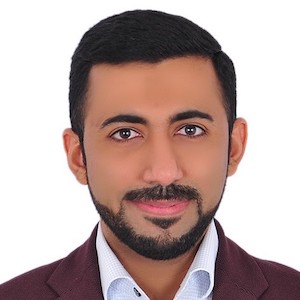
Ali Suwaidan
Clinical Research Training Fellow
King’s College London
I am a Clinical Research Training Fellow in Professor Tony Ng’s group based at King’s College London. My PhD research investigates the distinctive relationship between therapeutic DNA replication stress and immunomodulation across multiple solid tumours, including Head and Neck Squamous Cell Carcinoma (HNSCC), Non-Small Cell Lung Cancer (NSCLC), Gastro-Oesophageal Adenocarcinoma (GOA) and Colorectal Carcinoma (CRC). I am particularly interested in how replication stress induced immune response can be utilised in the clinic to inform better combinational therapies and to improve predictive biomarkers.
I am a Medical Oncology trainee at ST5 level. I have previously held NIHR Academic Clinical Fellowship during which I completed a Master of Research in Clinical Sciences (Cancer Studies) at University of Leicester.
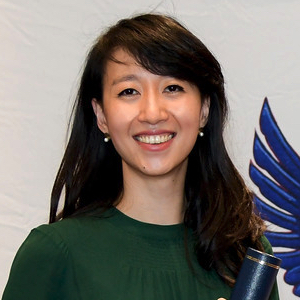
Catherine Zhu
Clinical Research Training Fellow
UCL
I am a clinical research training fellow in Dr Beth Payne’s group at the UCL Cancer Institute. My project focuses on the effects of inflammation and ageing on the bone marrow microenvironment, and how these changes contribute to the development of clonal haematopoiesis and subsequent cancer. I hope to explore the spatial relationship of immune cell populations, and identify risk factors for malignant disease progression.
I studied Medicine at the University of Cambridge, and am midway through Haematology specialist registrar training at University College London Hospital.
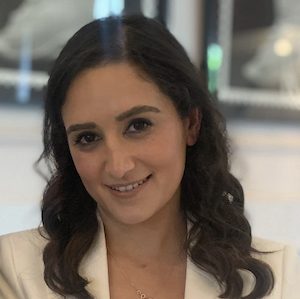
Maral Rouhani
Clinical Research Training Fellow
UCL
I am a Clinical Research Training Fellow in Professor Sam Janes’ group based at UCL Respiratory Medicine. My research aims to elucidate the drivers of upper airway squamous cancer progression, focusing on pre-invasive airway and laryngeal carcinoma-in-situ. I have been fortunate enough to spend the first seven months of my PhD in Professor Carla Kim’s lab at the Harvard Stem Cell Institute (Boston, USA), learning cell biology techniques which I will utilise on my return.
I studied Medicine at the University of Cambridge, where I completed a summer studentship at the Cambridge Institute for Medical Research and a Bachelor of Arts in Pharmacology, and I am now an Otolaryngology (ENT) specialist registrar in London.
